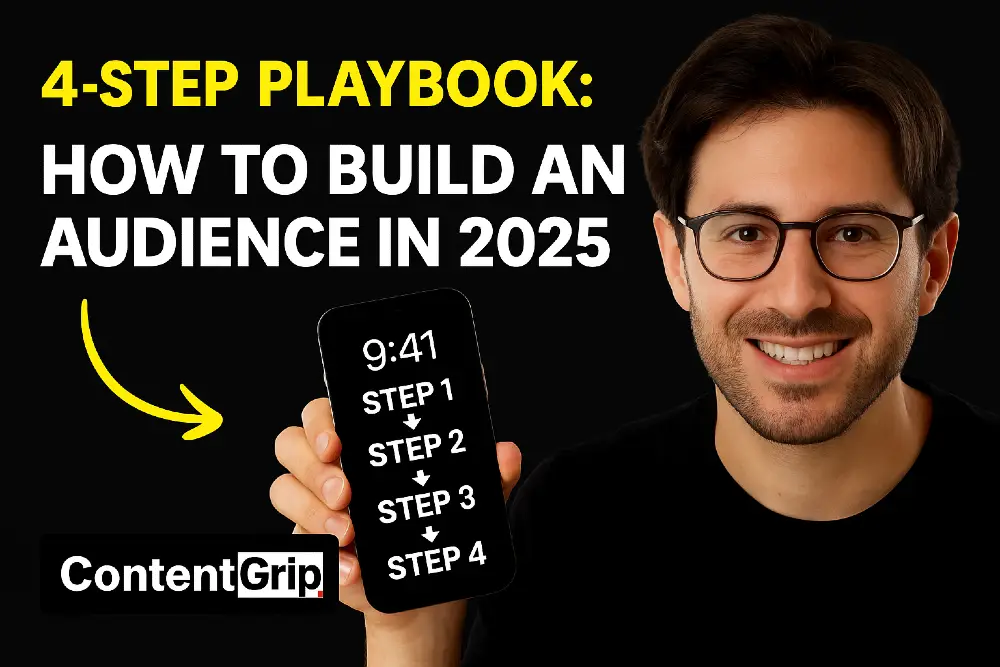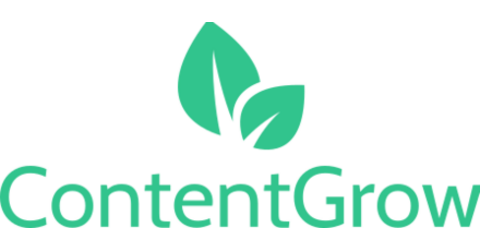7 proven LinkedIn content formats to boost reach and drive demos, according to Tommy Clark
Social media expert Tommy Clark shares 7 proven LinkedIn content formats that help founders increase reach and book more demos.

Tommy Clark, CEO of Compound and co-founder of Bluecast, recently shared an insightful guide to effective LinkedIn content strategies for founders struggling with poor engagement or uncertain what to post. His framework offers seven proven content formats that drive distribution and help book more demos directly from LinkedIn.
Compound is a social media agency specializing in LinkedIn growth strategies for founders and executives. The company helps clients develop content that resonates with their target audience while building their personal brand on the platform.
Origin stories consistently outperform other formats
Clark identifies the origin story format as "a consistent high-performer on ALL of our client accounts." This narrative-driven approach focuses on sharing the story behind your company and your motivation for starting it.
"We'll usually start with this," Clark notes, emphasizing that origin stories should be presented in a compelling narrative format rather than a chronological timeline. This approach humanizes your brand and creates an emotional connection with your audience.
According to research, storytelling content receives 22% more engagement than standard promotional posts, making it an effective way to introduce yourself to new connections[1]. This aligns with broader content marketing trends showing that authentic narratives significantly outperform traditional promotional content.

Lead magnets drive viral engagement when done right
While acknowledging that lead magnet posts can be controversial, Clark confirms they work when executed properly. These "Comment for [RESOURCE]" posts can generate significant engagement if the resource offers genuine value.
"Ask yourself 'would I pay $50 for this thing?' If not, don't bother giving it away," Clark advises.
The effectiveness of this approach aligns with content marketing statistics showing that 63% of marketers use content to generate leads, with lead magnets being among the most successful tactics[2]. Well-crafted lead magnets not only drive engagement but also help build valuable email lists for nurturing campaigns.
For this format, Clark suggests using images or GIFs that create curiosity about the lead magnet rather than revealing everything upfront.
Industry trend commentary builds topical authority
Commenting on industry trends helps establish thought leadership and can paradoxically improve reach even when discussing platform limitations. Clark shares a personal example: "I wrote a post yesterday about 'lowered LinkedIn reach' I've been observing, and what to do about it. The irony is it was my BEST post in the last week."
This approach works because it positions you within relevant industry conversations while providing value to others experiencing the same challenges. Social media thought leadership content is particularly effective with 90% of B2B decision-makers saying thought leadership content has influenced their purchasing decisions[3].
ICP templates offer practical value that gets saved and shared
Templates are highly effective because they provide immediate, practical value that audiences can implement without significant effort. As Clark puts it: "The people LOVE templates. They want stuff they can save and use without thinking about it much."
He points to his own post as an example of this format, noting that readers will likely save it for reference during future content creation sessions. This creates a lasting connection: "You'll associate me with helping you grow on LinkedIn."
Research supports this approach, with studies showing that practical, actionable content receives 83% more sharing and engagement than purely informational content[4].

Product roundups showcase innovation without sacrificing engagement
For teams with high shipping velocity, sharing periodic roundups of recent product developments can be surprisingly effective. "Share a list of all the features you've launched in the past 90 days," Clark suggests, noting the timeframe can be adjusted as needed.
"This format is great because it's product-centric, yet often performs well on the timeline," he explains. This works particularly well for SaaS companies aiming to showcase innovation without appearing overly promotional.
Dog-fooding demonstrations build credibility through authenticity
Using your own product and documenting the results creates both compelling content and built-in social proof. Clark cites Tyler Denk, who demonstrated how he used beehiiv to grow his own newsletter to nearly 100,000 subscribers.
"If you can use your own product and document it, you have an endless well of content to draw from," Clark explains, suggesting these posts work best when paired with video demos or dashboard screenshots showing compelling metrics.
Pain point + listicle format drives immediate action
This classic format starts by addressing a significant challenge before offering a structured list of solutions. "Start off digging into a deep pain point, and then use a list format to provide solutions," Clark explains, noting that his own post exemplifies this approach.
The format works because it identifies a common struggle (not knowing what to post on LinkedIn), then delivers immediate, actionable solutions (seven content formats to try).
In a bonus comment, Clark added an eighth format: the "Oh Sh*t Moment" narrative, which focuses on sharing stories of overcoming significant business challenges, preferably with a subtle connection to your company's mission.

Consistency and testing drive LinkedIn success
Clark's comprehensive guide provides founders with enough content ideas to sustain months of LinkedIn activity by mixing and matching different formats. The key is to start implementing these strategies consistently rather than searching for the perfect approach.
As data shows, consistency matters on LinkedIn - accounts that post at least weekly see twice the engagement of those posting less frequently[6].
For marketers and founders looking to improve their LinkedIn performance, Clark's framework offers a proven starting point that balances authentic storytelling with strategic content designed to drive specific business outcomes like demo bookings and increased visibility.
Sources
- HubSpot. (2023). Social Media Trends Report. https://www.hubspot.com/social-media-trends
- SEMrush. (2023). State of Content Marketing. https://www.semrush.com/state-of-content-marketing
- Influencer Marketing Hub. (2023). B2B Influencer Report. https://influencermarketinghub.com/b2b-influencer-report/
- Campaign Monitor. (2023). Email Marketing Trends. https://www.campaignmonitor.com/resources/guides/email-marketing-trends/
- McKinsey & Company. (2023). The value of getting personalization right—or wrong—is multiplying. https://www.mckinsey.com/capabilities/growth-marketing-and-sales/our-insights/the-value-of-getting-personalization-right-or-wrong-is-multiplying
- LinkedIn. (2024). Content Marketing Best Practices. https://business.linkedin.com/marketing-solutions/success/best-practices






